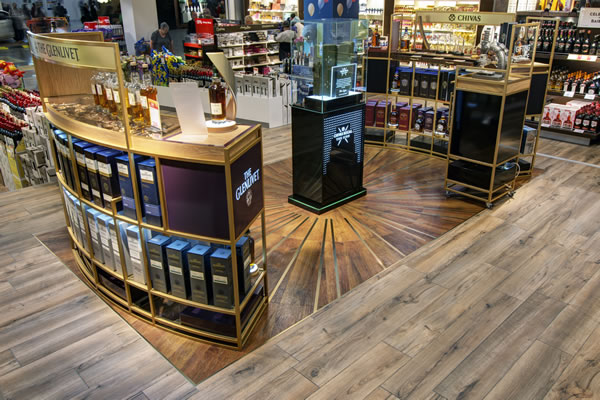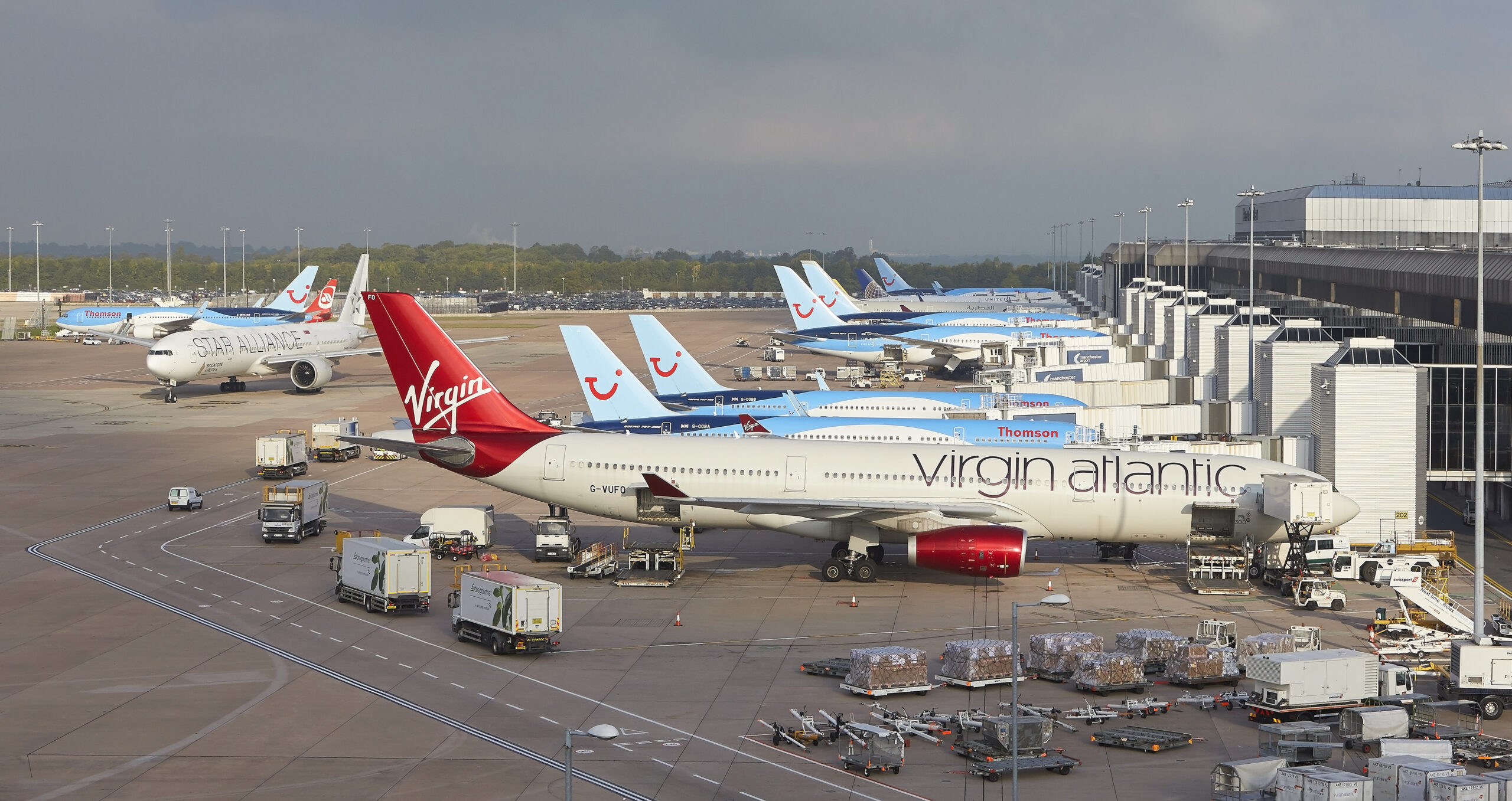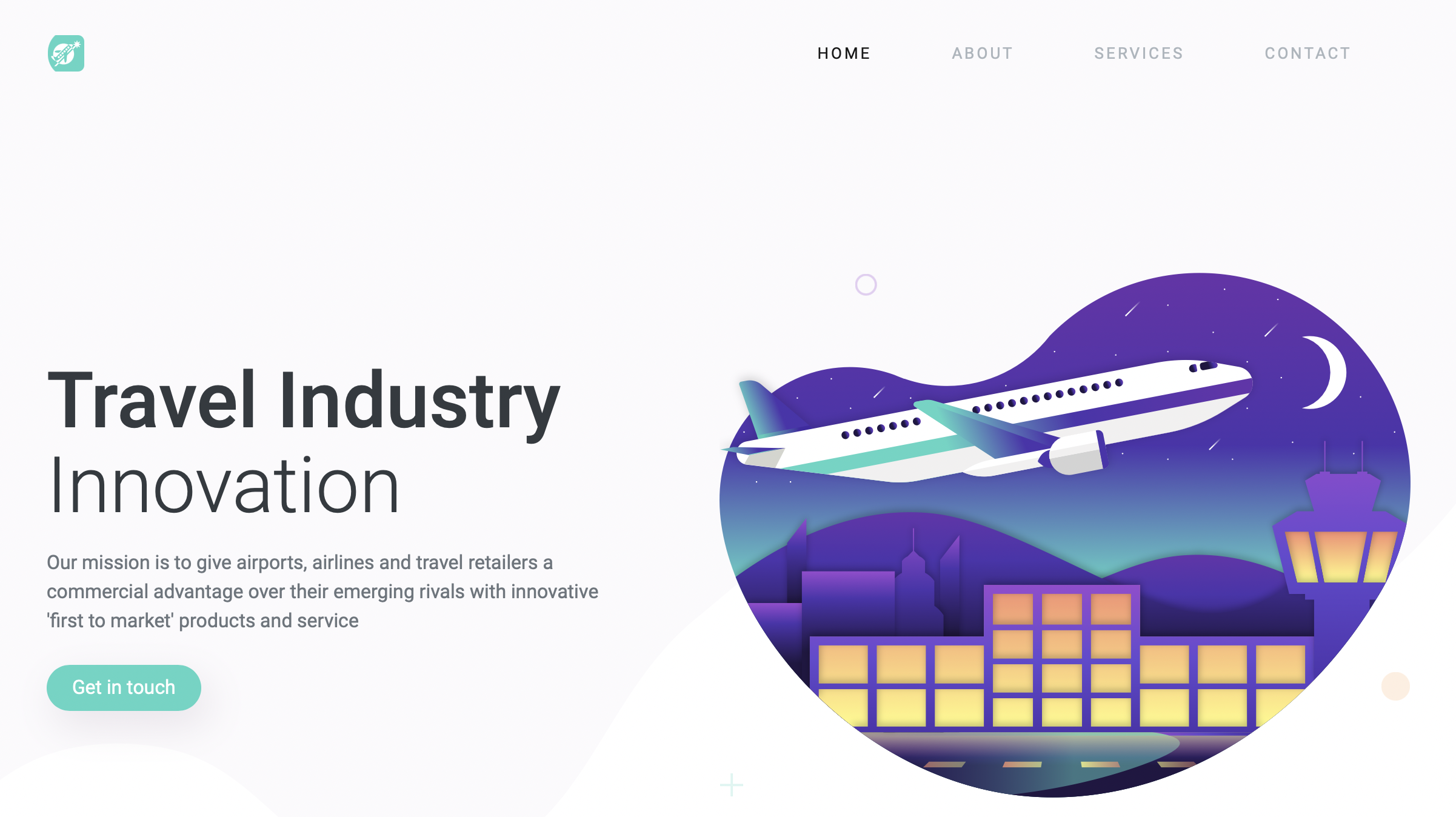ISRAEL. Entrepreneur Ian Kay found a natural home for himself when he departed the UK for Israel seven years ago. He discovered the ideal environment for growing his Wand Technology and AirTraffix businesses, which help to grow ancillary revenues for airlines, airport and travel retail operators.
The COVID-19 pandemic has stood in the way of the rapid growth of his enterprises, but Kay has remained highly optimistic, putting his head above the parapet during this difficult period to advance some challenging views on social media about the way forward for the travel retail sector. The Moodie Davitt Report’s Senior Business Editor Mark Lane seeks his views on what should come next for a sector which Kay believes needs to make some major strategic changes in order to thrive once again.
These are severely turbulent times for the aviation market but Ian Kay comes across as the kind of man to thrive when the going gets tough.
He has spoken out regularly on social media platforms such as LinkedIn since the start of the COVID-19 crisis, challenging people in the travel retail and wider aviation industry to think differently and not to simply believe that what has worked in the past will automatically thrive again.

Kay specialises in the development and implementation of new business models to grow ancillary revenues for airlines, airport and travel retail operators.
He operates out of Israel, where he relocated from the UK in 2014, and the culture he has found there is one he feels at home with.
Kay says: “Israel is a remarkable country that values and promotes a buccaneering spirit of innovation and I suspect that, whereas kids in Europe and the US are brought up to know verbs and fractions and dates, the kids here are encouraged to found start-ups and be fearless entrepreneurs. For a guy who has spent a career devising new ways of doing things, it was like moving to Disneyland.”
Kay is the Director of Operations of Wand Technologies, which owns and operates AirTraffix, a middleware platform that directs consumer traffic from airlines and OTAs (online travel agents) to online travel retail marketplaces.
He cheerfully describes himself as “a professional trouble-maker” who, for the last few decades, has worked to persuade businesses to do things differently.
“Retailers to dazzle their customers with more in-store theatre; outdoor advertisers to engage viewers with a more multisensory experience; and airports to deliver more pleasurable and satisfying passenger journeys,” Kay says of his industry wish-list.
“I certainly haven’t been everyone’s cup of tea but have been very lucky to have worked with some very open-minded clients who have embraced a culture of innovation and encouraged new product developments where there was genuine belief that they would result in something beneficial and profitable.”
It was in 2011, while he was with Manchester Airport Group looking at digitalisation, collaboration, and passenger engagement, that he recognised a problem with travel retail: the captive market the industry had always relied on spending in duty free shops and on planes could no longer be taken for granted.
“My sense is that there will be big players in our industry that are hoping that the pandemic will end soon and that the new normal will look as much as possible like the old normal”
He explains: “The big online players were simply creating a better offering with more choice, convenience and value and this meant that passengers could look elsewhere and did. Many airlines responded by removing their trolleys altogether and the retailers dabbled with digital but struggled to compete for the consumer traffic where the costs of acquisition became far too prohibitive.
“It seemed crazy to me that one side of the industry had the opportunity to create a global network of online stores and the other side had a potential audience of billions of motivated online shoppers and there was no means of directly linking the two.”
AirTraffix has been designed to fill this gap. It’s a marketing tool for consumer acquisition, serving travel retailers with online marketplaces by directing traffic to their ecommerce sites from airlines and online booking agents.
The company does this through calls to action on the digital communications that passengers receive post-booking and up to their day of travel. The retailers and their brand partners pay AirTraffix for the visibility, conversions into their stores and sales. AirTraffix then shares this revenue with the airlines and the booking agents.
“This is our business model,” says Kay. “I’d love to make it sound more complex, but that’s it.”

He believes that the travel sector holds a unique and critical advantage over its external online challengers. It enjoys first contact with the passengers, offering the opportunity to start and sustain a conversation at multiple points before their day of travel and beyond.
He says: “I believe that the collaboration that the players always talk about but never truly embrace will exploit this opportunity and ensure that passenger spend is retained within the ecosystem. In this way the advantage is returned to the industry.”
Like many entrepreneurs, especially those in the travel & tourism sectors, Kay has felt the chill of the pandemic.
“If this was January 2020, you’d be talking to an upbeat and optimistic guy looking forward to a strong trading year, bringing the AirTraffix product to market. Then March 2020 arrived and business life took on a rather different shade. Grounded aircraft, closed airports and shuttered shops have meant no passengers and therefore no business. Two months certainly changed everything, but I remain optimistic.”
“My advice to travel retailers in simple: Talk to your brand partners. They want you to take your online sales channels more seriously. They’re right.”
Kays adds: “I’m a seasoned trouble-maker, as I’ve already mentioned, and have spent a lot of time talking to my airline and airport network about the impact of the global shutdown on trade, emphasising how a more imaginative approach to targeting, marketing and commercialising their business through collaboration could mitigate some of the impact.
“My sense is that there will be big players in our industry that are hoping that the pandemic will end soon and that the new normal will look as much as possible like the old normal. For them it will simply mean business as usual with drinks all round in celebration of having weathered the most ferocious of storms, notwithstanding the collateral damage to people and partners along the way.
“For others, the post-mortems may deliver different conclusions, ones that address the risk of repetition and inform tactics to ensure that business can remain active and profitable and jobs can be protected.”

Kay argues that in-airport travel retail will always have an important role, adding to the excitement of a trip and in providing a physical space to which digital links can be created, linking passengers from an online call to action to a physical product.
He says: “The two can always work together harmoniously and seamlessly as part of any mixed marketing strategy. For this to happen my advice to travel retailers in simple: Talk to your brand partners. They want you to take your online sales channels more seriously. They’re right.”
He concedes that, at the moment, airlines whose priority is getting planes safely back in the air and cash back in the bank, and probably with reduced staff and budgets, will have little time for trouble-makers with new approaches.
“Unfortunately, we live in a time when it’s easier to get Jeff Bezos and his brother to Mars than to get all the travel industry leaders to sit around the same table and sort it out”
“All this is understood,” he says. “So, if you want to make money from shopping at zero cost to you, with zero staffing or management inputs, with zero tech intrusion and with absolutely no data share, we have a solution for you that can be deployed immediately and with the softest of touches.”
Meanwhile, he admires the way Israel has been coping with the COVID-19 pandemic. “We’re living with the virus and recording minimal rises in hospitalisation and no increases in morbidity. Our borders are still closed to international travellers and while this is not ideal for our tourist sector, we anticipate the reopening in the next few weeks.”
This will allow him to resume face-to-face contacts instead of relying on Zoom. He says: “It will never be a substitute for proper human contact, but it has given us all a way to keep talking while we’re sitting in our spare bedrooms in our hoodies.”

Kay is reluctant to be drawn on the specifics of the industry’s future, but he says: “I am intuitively optimistic though and look forward to the time when leaders from across our sector come together to act in concert, taking responsibility for their collective fortunes and regaining control of their commercial futures.”
He adds: “Unfortunately, we live in a time when it’s easier to get Jeff Bezos and his brother to Mars than to get all the travel industry leaders to sit around the same table and sort it out.
“It’s a pity because it’s an industry that has been trusted for decades by the governments of the world to put planes in the air safely and transport billions of us every year from one point to another without fuss.
“I wish that our best minds were more mindful of this reality and it caused them to work together to devise a credible and coherent global blueprint for health management in transit, the presentation and acceptance of which would engender the same levels of public trust.
“Governments have been surrounded by walls of noise from ‘experts’ and our industry should have spoken with a collective voice from the start to inform decisions on border control and exert far greater influence on keeping travel alive.
“I remain hopeful but suspect we’ll be seeing the Bezos podcast from Tharsis long before this happens.”













